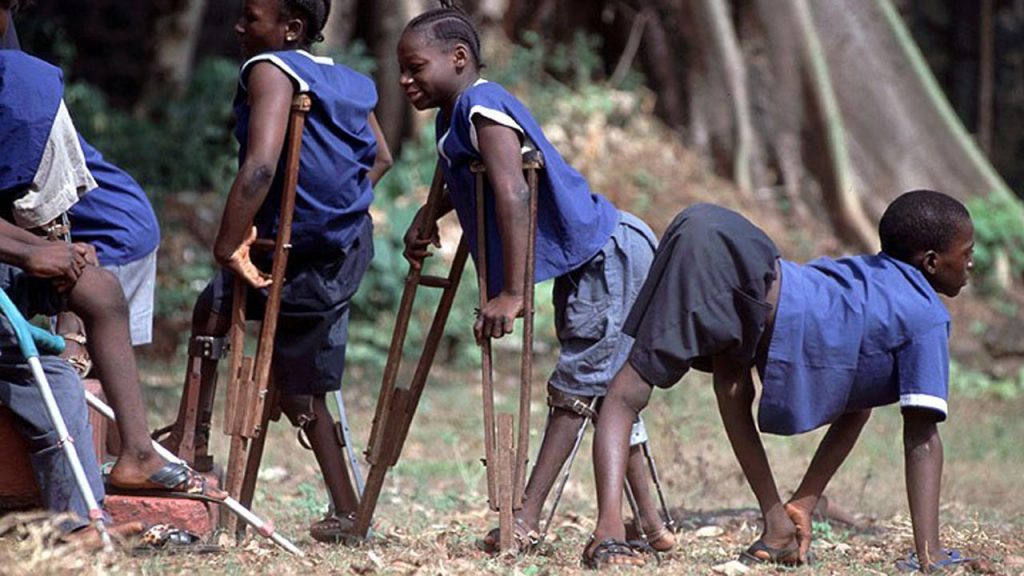A declaration the other day by the World Health Organisation (WHO) that Nigeria is polio-free is heartwarming. It is worth celebrating against the backdrop of the havoc polio has wreaked in the country. To be free from the grip of this debilitating disease is indeed a breakthrough and so the agencies behind this feat should be celebrated.
Nigeria has for a while been on the verge of being certified free but has repeatedly failed to cross the bar. This very day has been very much expected.
The free status followed the completion of documentation protocols by the WHO. It takes at least three years of no new infection to declare a country polio-free. Nigeria waited for the certification for over five years. It was the fruit of hard work and commitment by all stakeholders with all hands on deck. The WHO reportedly disclosed Nigeria’s new status on its regional office for Africa in Brazzaville, Congo, official twitter account @WHOAFRO.
“Today, Nigeria’s complete documentation for Wild Polio virus free status was accepted by the Africa Regional Certification Commission (ARCC) for polio eradication. It is a historic day for Nigeria, Africa and the Global Polio Programme,” WHO stated.
Dr. Faisal Shuaib, executive director and CEO of the National Primary Health Care Development Agency (NPHCDA), described the development as amazing moment in history to have had our polio-eradication documentation accepted by ARCC. He said Nigeria achieving a Wild Polio virus-free status is significant on multiple fronts. I look back at the incredible leadership that has brought us here.He thanked President Muhammadu Buhari, Mr. Aliko Dangote and Mr. Bill Gates who made it possible through their financial and technological contributions.
While the development is gladdening, it is not yet a time to relax. The main challenge now is how to sustain the freedom from polio by ensuring that the country does not relapse. This calls for more intensive effort. All the stakeholders should rally to sustain this feat. Our joy should not be short-lived by official laxity.
The cheering news simply underscores the success of Nigeria’s anti polio campaign, which in no way, at this time, means relaxing the effort. As a matter of fact, the effort should be intensified. There should be more aggressive action at the grassroots to ensure irreversible eradication. The populace also needs more sensitisation to keep safe of the disease.
Meanwhile, Buhari’s promise that the Federal Government and its partners would not rest on their oars but would continue to provide the needed oversight and resources to achieve total polio eradication is noteworthy.
The WHO and the United Nations Children’s Fund (UNICEF), together with other leading partners in the polio eradication effort, under the Global Polio Eradication Initiative (GPEI), would expect Nigeria to be on the alert through heightened surveillance, especially, in the border areas.
After decades of devastation, it is heartwarming that Nigeria has been removed from a list of polio-endemic countries, which had 125 members. The country must protect the gains it has made and stay on course to tackle the challenges that may ensue in sustaining the polio-free status.
We commend the effort of the government and all development partners, who, over the years have committed time, effort and resources in combating polio. Thousands of innocent children have suffered debilitating health conditions resulting from the disease.
Worldwide, record shows that polio cases have decreased significantly by over 99 per cent from an estimated 350,000 cases to 74 cases in 2015. The reduction is due to a global effort to eradicate the disease. Today, there are only two polio endemic countries, namely, Afghanistan and Pakistan, from as many as 125 in 1988.
Poliomyelitis is a debilitating infectious disease caused by the poliovirus, which affects children mainly under five years of age. The disease presents in muscle weakness, resulting in inability to move. It leads to irreversible paralysis in most of the victims.
The onus is on the global community to intensify the polio eradication effort, for the prognosis shows that so long as a single child remains infected, children in other countries are at risk of contracting the disease. What authorities in Africa’s most populous country will remember is that eternal vigilance is the price we pay for liberty.

